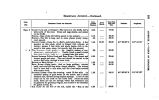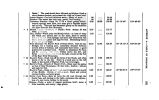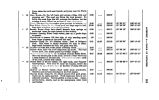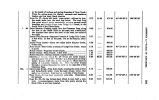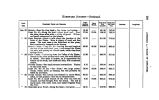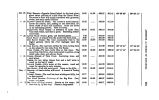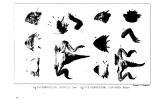| OCR Text |
Show OGALLALAH SIOUX- CHEYENNE CHIEF. 258 to be a large band of Ogallalahs, ( one of the numerous bands of Sioux,) who had discovered us early in the morning, and had been anxiously watching our movements all the day, having mistaken us for a war- party of Grows. As soon as they saw the flag displayed, they knew at once that we were whites, but had hesitated to approach us, through fear of the small- pox, which they represented as raging below and in the neighbourhood of Fort Laramie. They had fled hither to avoid it, and were much alarmed lest we should have it among us. Being assured to the contrary, they poured in upon us from all quarters, and our camp was soon crowded with them. Several of the chiefs and head men had certificates from the commanding officer at Fort Laramie, and from different emigrant companies, as to their friendly character, which they handed to me with an empressement which showed the great importance they attached to them. Some coffee, flour, and sugar were served out to them, together with all the tobacco I could spare; and after a plentiful repast, they departed for their village on the Laramie, about two miles below, with every demonstration of good- will. The head chief, who rejoiced in the very original title of " Buffalo Dung," gave me a warm invitation to pay him a visit in the morning; which I promised to do. The band consisted of several hundred: they were, for the most part, fine- looking men, straight, tall, and athletic, and generally well mounted. I afterward learned that as soon as they recognised our flag, and became satisfied as to our character, they had sent word to the spot selected for their temporary camping-ground, whereupon the squaws, reassured, immediately commenced putting up the lodges; and before sundown the plain was white with them. Among the Sioux was one solitary, dignified old Cheyenne chief, who figured in the undress frock of a major of artillery, buttoned closely up to his throat, and of which he seemed not a little vain. To my surprise, I found that he did not understand the Sioux tongue at all, and communicated with those of that tribe wholly by signs. The Sioux chief with the unpronounceable name, the translation of which has already been given, was a noble- looking old man, and very much disposed to be sociable. He explained to me that he was greatly afflicted with sore eyes, and begged for something to cure them. I had nothing but an old pair of goggles, with very dark green glasses, which I gave him, and with which he was very much delighted, mounting them with great complacency, |
































































































































































































































































































































































